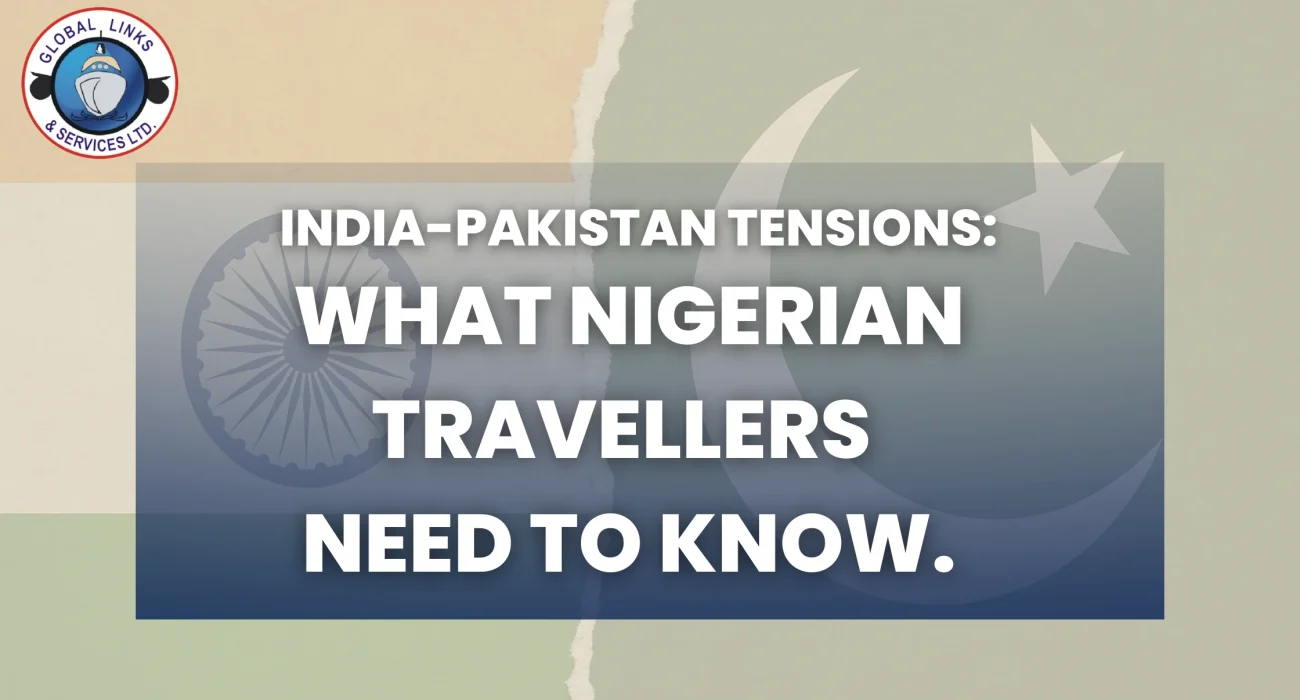The escalating tensions between India and Pakistan have captured global attention, with the situation growing increasingly tense since the April 22, 2025, terrorist attack in Pahalgam, Kashmir. The attack claimed the lives of 26 people and sparked a series of retaliatory actions between the two nuclear-armed neighbours. For Nigerians planning to travel to this part of the world, it’s critical to stay informed and understand the larger implications of this ongoing conflict.
A Brief History of the Conflict
At the heart of the current tensions lies Kashmir, a region that has long been a point of contention between India and Pakistan. The terrorist attack in Pahalgam, a picturesque town in Kashmir, triggered retaliatory airstrikes by India, targeting what it claimed were terrorist infrastructures in Pakistan. The resulting casualties, including both military and civilian losses, have further ignited a volatile situation. Pakistan, not one to back down, responded with its own drone strikes, and soon both countries were exchanging missiles. In the midst of this, cities like Amritsar and Rawalpindi have been caught in the crossfire, with reports of drones targeting civilian areas, including places of worship.
This is not a new conflict. India and Pakistan, both nuclear-armed and historically adversarial, have exchanged blows in this region for decades. The international community, including nations like Saudi Arabia and Iran, have urged de-escalation, and the United Nations has called for restraint. Despite these efforts, the situation remains precarious, with widespread reports of civilian evacuations from border areas and the suspension of cross-border trade.
What Nigerian Travellers Need to Know
For Nigerians who had hoped to visit India or Pakistan in the coming months, this conflict has resulted in major disruptions and heightened risks.
- Travel Disruptions
The conflict has resulted in significant disruptions to travel in northern India and Pakistan. Many major airlines have suspended flights to these regions, particularly in the wake of airspace restrictions and safety concerns. If you’ve planned to visit cities like Delhi, Amritsar, Lahore, or Islamabad, expect possible flight cancellations, delays, or rerouted travel. For those planning to attend the Indian Premier League (IPL), the event was temporarily suspended, underscoring the extent of these disruptions. - Safety Concerns
The situation in northern India, especially in Kashmir, Punjab, and Jammu, has become a high-risk zone. Drone strikes, missile exchanges, and civilian casualties have made these areas particularly dangerous. Nigerian travellers are strongly advised to stay clear of these regions until tensions ease and the situation stabilises. - Visa and Trade Restrictions
Both India and Pakistan have suspended cross-border trade and halted visa issuance in many cases. This has complicated travel plans for those intending to visit for business, education, or tourism. Nigerian visitors hoping to engage in cultural exchanges or trade may find themselves facing delays or cancellations. - Global and Economic Implications
As with many geopolitical conflicts, the ripple effects are being felt far beyond the immediate region. Global markets, including oil prices and trade routes, could see changes as a result of this standoff. For Nigerian travellers, this could mean increased travel costs or indirect economic impacts that might make travel more expensive than initially planned.
What Nigerian Travellers Should Do
- Stay Informed
Nigerians will likely get updates through international outlets like BBC, Al Jazeera, and Reuters, but local media sources such as Channels TV, Arise TV, and TVC will also cover developments. Social media platforms, like X, will undoubtedly have real-time updates, but be cautious, some posts may exaggerate or spread misinformation, especially regarding unverified claims. - Follow Travel Advisories
It’s important to stay connected with official updates from the Nigerian Ministry of Foreign Affairs. This body will likely issue travel advisories, which may include instructions to avoid non-essential travel to the affected areas. Embassies in India and Pakistan will also be a reliable source of up-to-date information. - Reconsider Travel Plans
If you’ve planned a trip to northern India or Pakistan, now may be a time to reassess. Until the situation stabilises, consider postponing your trip or exploring alternative destinations. While other parts of India may be unaffected, northern regions remain volatile. - Confirm Flights and Accommodations
If your plans are still intact, be sure to double-check with airlines to confirm the status of your flights. Keep in mind that cancellations or delays are likely to extend well beyond May 7, 2025, and be prepared for alternative routes or rescheduling. Having a contingency plan for accommodations and transport is also a wise step. - Prepare for Economic Effects
The global economic landscape is bound to shift as a result of this conflict. It may be wise to prepare for possible price hikes in travel-related costs, such as fuel surcharges or price inflation across the board.
Looking Forward
With tensions continuing to rise, the next steps will depend heavily on diplomatic interventions. For now, Nigerian travellers are urged to stay alert and prioritise safety above all else. Whether you’re already in the region or planning a future visit, the key to navigating this crisis is staying informed, taking necessary precautions, and remaining flexible with your travel plans.
For updates on the evolving situation, subscribe to the Global Links WhatsApp Channel. Safe travels, and take care.



